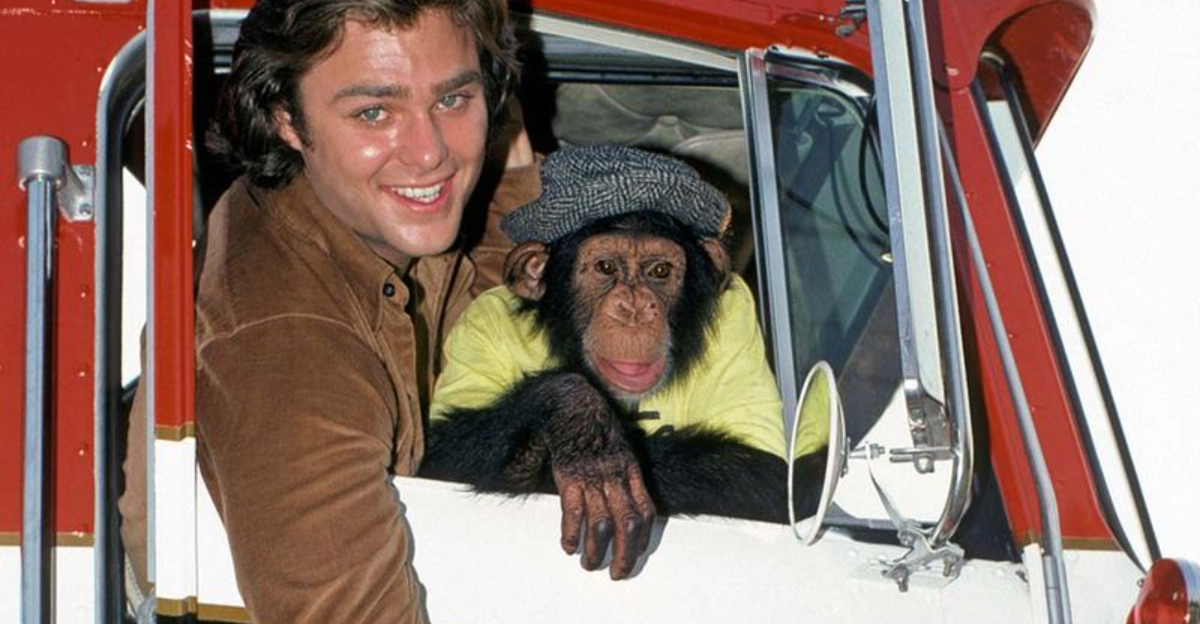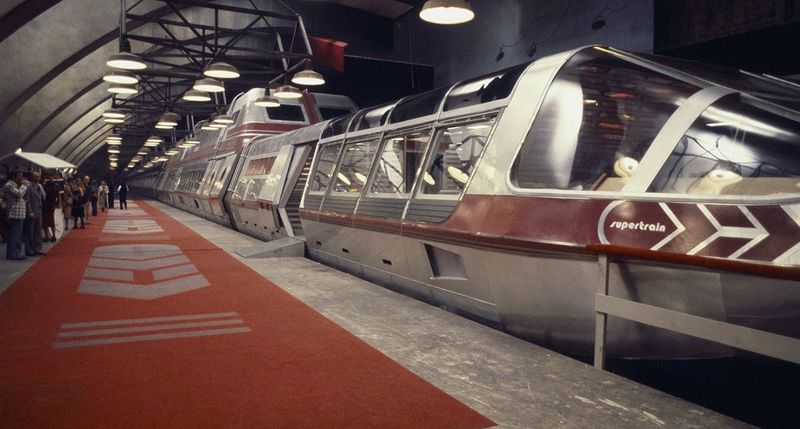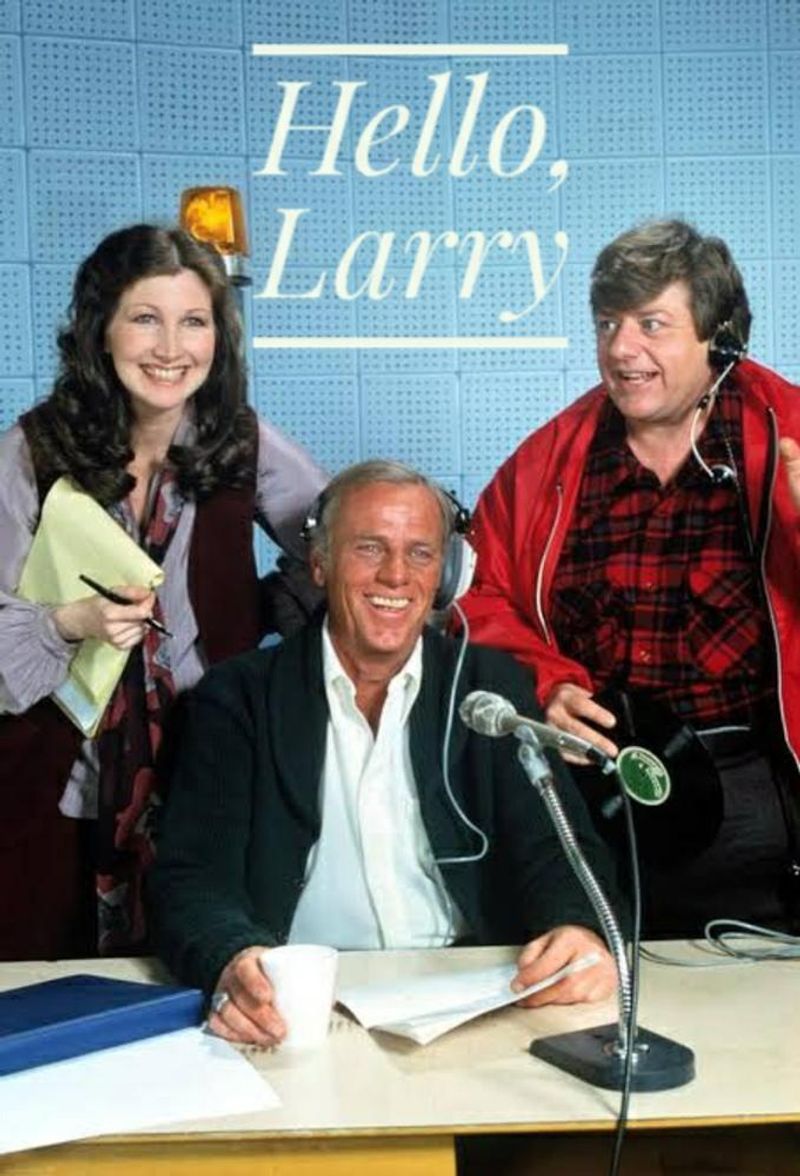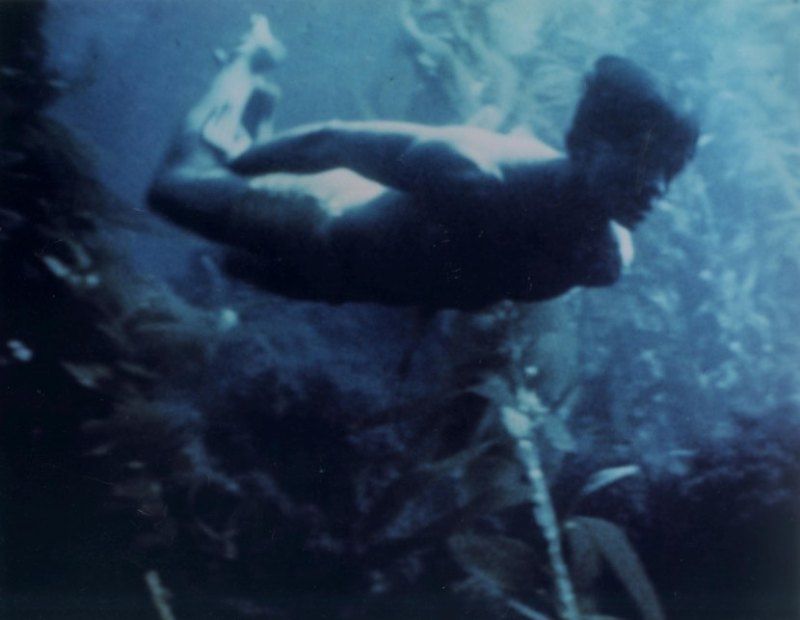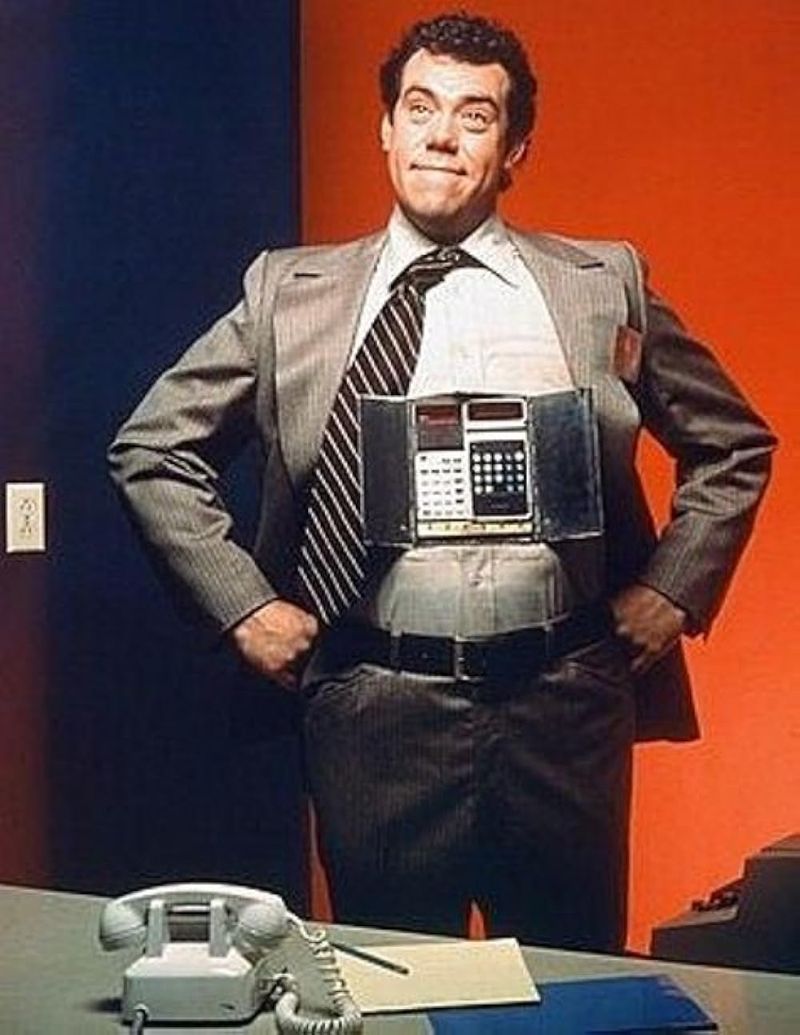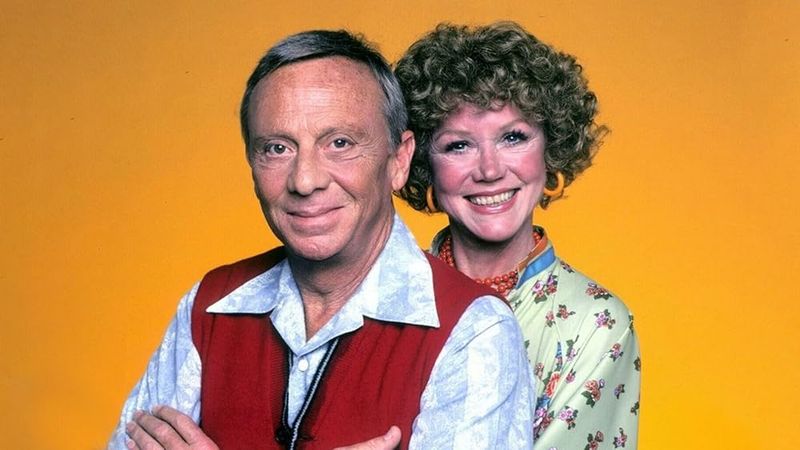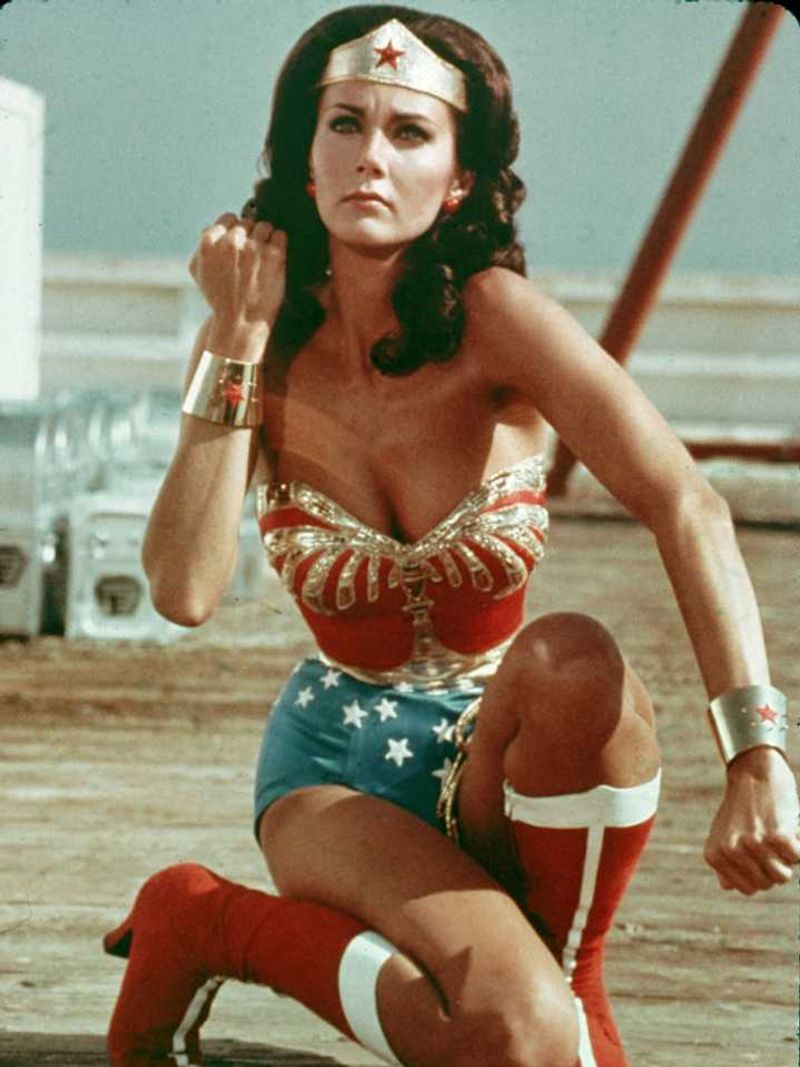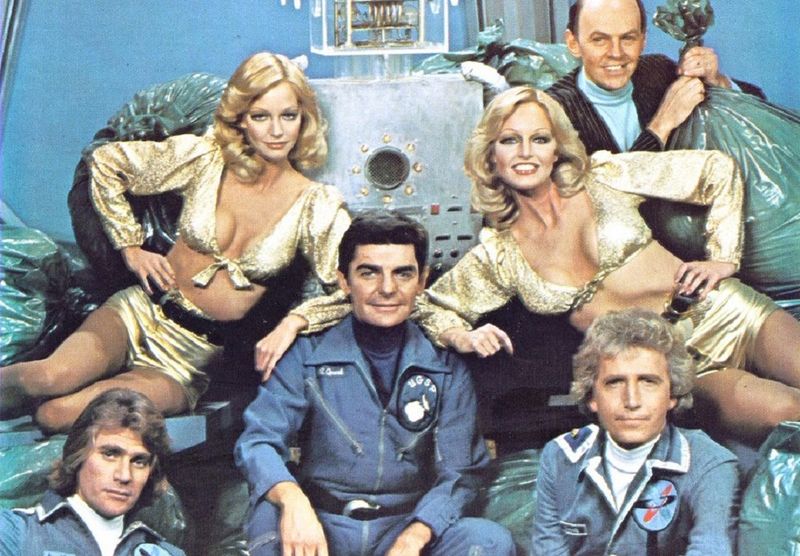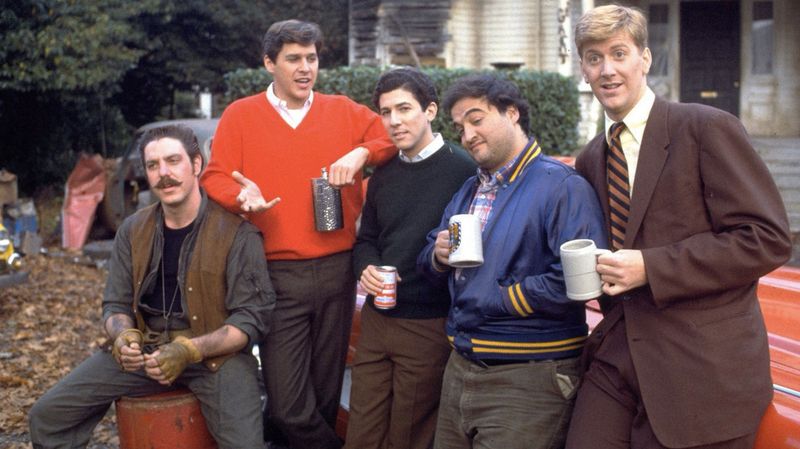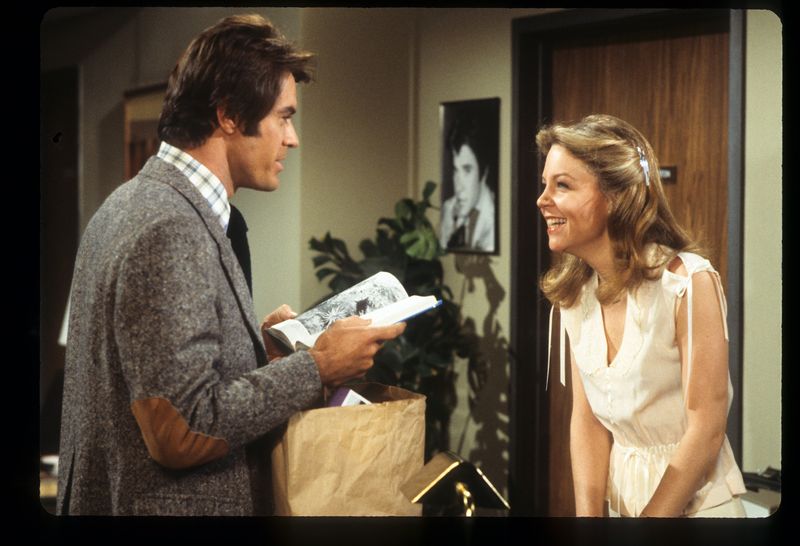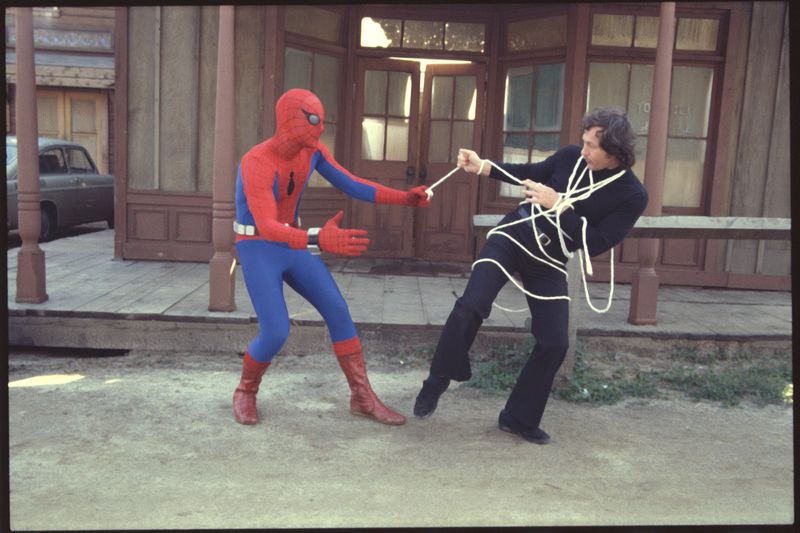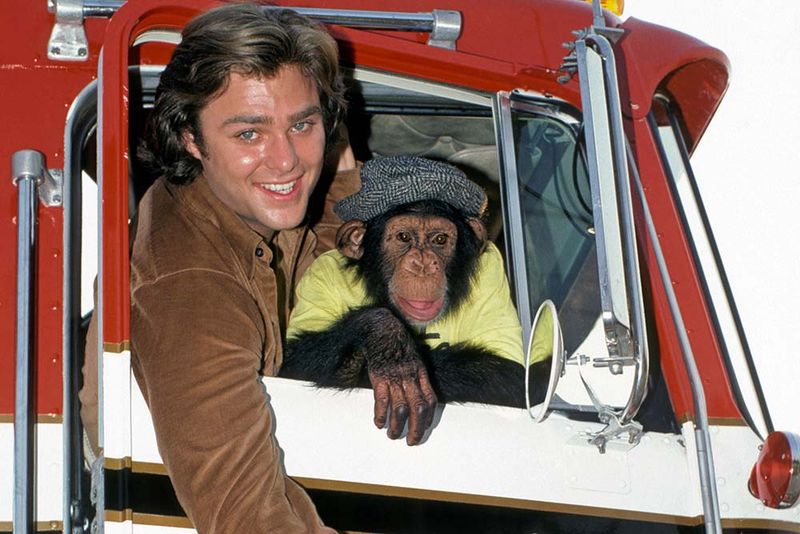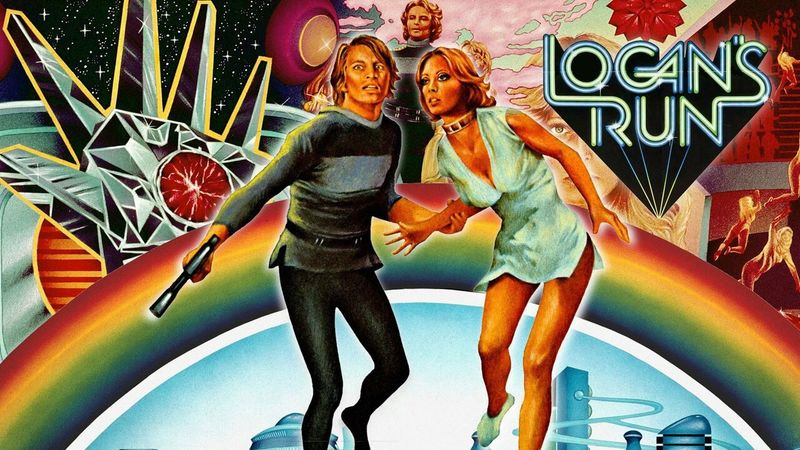The 1970s TV landscape gave us some unforgettable classics that defined a generation. Networks competed fiercely with splashy concepts, big-name stars, and innovative premises. But beneath the bell-bottomed surface of television glory lurked shows that simply couldn’t deliver on their exciting promises. These programs started with fanfare but fizzled into mediocrity, leaving viewers wondering what went wrong.
1. Supertrain: The Million-Dollar Railroad Disaster
NBC executives believed they had the next ratings juggernaut in 1979. A nuclear-powered luxury train with swimming pools, shopping centers, and glamorous guests? What could go wrong?
Everything, as it turned out. The production costs ballooned to nearly $10 million (astronomical for the era), while wooden acting and predictable plots made the show a critical punching bag.
Supertrain derailed after just nine episodes, becoming one of television’s most expensive flops. The elaborate miniature trains frequently malfunctioned during filming, serving as a perfect metaphor for the show itself.
2. Hello, Larry: The Punchline That Became a Joke
McLean Stevenson left M*A*S*H at the height of its popularity, expecting greener pastures. Instead, he landed in Hello, Larry, a sitcom about a radio host raising two teenage daughters in Portland.
The show became comedy shorthand for failure, regularly skewered by Johnny Carson in his Tonight Show monologues. Despite crossovers with Diff’rent Strokes to boost ratings, viewers couldn’t connect with the stilted dialogue and forgettable characters.
Fun fact: The show’s reputation was so bad that “pulling a Hello, Larry” became industry slang for leaving a successful series for a doomed project.
3. Man from Atlantis: The Underwater Hero Who Sank
Patrick Duffy’s webbed fingers and unique swimming style promised underwater adventures unlike anything television had seen before. As the amnesiac last survivor of Atlantis, Mark Harris had superhuman strength, could breathe underwater, and withstand extreme ocean depths.
The premise quickly drowned under the weight of repetitive plots and budget constraints. Viewers tired of watching Duffy perform his dolphin-kick swimming move against obviously fake underwater backdrops.
The series lasted just 13 episodes despite NBC’s massive promotional campaign. Duffy escaped the sinking ship to find greater success on Dallas the following year.
4. Holmes & Yoyo: When Robot Cops Weren’t Cool Yet
ABC thought they had struck gold with this high-concept buddy cop show. Detective Alexander Holmes gets partnered with Gregory “Yoyo” Yoyonovich, an android so realistic only a few people know he’s not human.
The robot gimmick quickly ran out of steam. Yoyo would malfunction at comedically convenient moments, spinning in circles when wet or interpreting idioms literally. These tired jokes repeated endlessly across the show’s brief run.
Created by the team behind Get Smart, Holmes & Yoyo lacked the spy spoof’s charm and satirical edge. The network pulled the plug after just 13 episodes in 1977.
5. The Ropers: When Supporting Characters Couldn’t Support a Show
Stanley and Helen Roper stole scenes as the nosy landlords on Three’s Company. Their bickering marriage and Stanley’s legendary tightfistedness made them fan favorites, prompting ABC to give them their own spinoff in 1979.
Removed from the apartment building that defined them, the Ropers seemed stranded in their new upscale neighborhood. The fish-out-of-water premise grew stale after viewers realized Stanley’s cheapskate routine and Helen’s sexual frustration jokes couldn’t sustain 30 minutes.
Norman Fell reportedly had a contractual guarantee to return to Three’s Company if The Ropers failed. Unfortunately for him, the network replaced the Ropers with Don Knotts before the spinoff’s cancellation.
6. The New Adventures of Wonder Woman: Paradise Island Lost
After a successful first season set in the 1940s, Wonder Woman made a jarring leap to contemporary 1977 for its second season. Lynda Carter remained stunning in the iconic costume, but the show’s soul disappeared somewhere in the time jump.
Gone was the charming World War II setting that gave the series historical weight. In its place: disco-era fashions, uninspired villains, and storylines that increasingly ignored Wonder Woman’s mythological origins.
CBS continued tinkering with the format until viewers hardly recognized the show they’d initially loved. Even Wonder Woman’s iconic twirling transformation became less frequent as the series prioritized Diana Prince’s government agent persona over her superhero identity.
7. Battlestar Galactica: Star Wars Envy That Missed the Mark
ABC executives saw Star Wars breaking box office records and demanded their own space opera—immediately. The resulting rush job looked impressive with its $1 million-per-episode budget but lacked the storytelling depth to match its visuals.
The show recycled the same special effects sequences repeatedly to save money. Eagle-eyed viewers noticed identical explosion shots appearing in multiple episodes, while the plot about humans searching for Earth became repetitive.
Creator Glen A. Larson loaded the series with references to Mormon theology that confused mainstream audiences. Despite these flaws, the show maintained enough cult appeal to inspire a far superior reimagining in the 2000s.
8. Quark: The Space Comedy That Fell Into a Black Hole
Richard Benjamin starred as Adam Quark, captain of an interstellar garbage scow in this sci-fi parody. His crew included a plant-human hybrid, clones with opposing personalities, and a transmale first officer—revolutionary concepts for 1977 television.
The NBC comedy came from the brilliant mind of Buck Henry (Get Smart, The Graduate) but struggled to find the right balance between genuine science fiction and comedy. Episodes parodying Star Trek and 2001: A Space Odyssey showed promise but lacked consistency.
Network executives pulled the plug after just eight episodes. The series remains a fascinating footnote in TV history—a show whose ambition exceeded television’s readiness for truly weird sci-fi comedy.
9. Delta House: Animal House Without the Animals
The blockbuster success of National Lampoon’s Animal House prompted ABC to commission this watered-down TV adaptation in 1979. John Belushi’s character Bluto was replaced by his brother, “Blotto,” played by Josh Mostel—setting the tone for a series of pale imitations.
Network television standards neutered the raunchy fraternity antics that made the film memorable. Without the R-rated humor, Delta House became just another forgettable college comedy with tame pranks and predictable plots.
The show retained John Vernon as Dean Wormer but lost most of the film’s creative team. After 13 episodes of declining ratings, ABC expelled Delta House from its schedule permanently.
10. Tabitha: Bewitched’s Daughter Couldn’t Conjure the Magic
Viewers who tuned in expecting to see little Tabitha all grown up got a bewildering surprise. Despite being a direct Bewitched spinoff, the show inexplicably recast the role and created timeline inconsistencies that confused loyal fans.
Lisa Hartman played the now-adult witch working at a TV station alongside her non-magical brother Adam (who had been born with powers in the original series). The workplace setting abandoned the domestic magic formula that made Bewitched successful.
ABC kept tinkering with the concept throughout production, resulting in a muddled show that pleased neither newcomers nor Bewitched devotees. The spell broke after just one season of declining ratings.
11. The Amazing Spider-Man: Web-Slinging on a Shoestring
Children nationwide begged their parents to let them stay up late when CBS announced Spider-Man was swinging onto primetime in 1977. The reality proved far less amazing than the comics that inspired it.
Nicholas Hammond looked the part of Peter Parker but spent more screen time solving mundane mysteries than battling supervillains. Budget constraints meant Spider-Man never faced iconic foes like Green Goblin or Doctor Octopus.
The wall-crawler’s web-swinging looked painfully fake, with obvious harnesses and unconvincing stunt work. Even in the pre-CGI era, viewers expected more than a guy in pajamas climbing up buildings at a snail’s pace.
12. BJ and the Bear: The Trucker and His Monkey Show
NBC executives actually greenlit a series about a freelance trucker who traveled with his pet chimpanzee named Bear. Greg Evigan played BJ McKay, a handsome long-hauler who somehow found himself in outlandish adventures weekly while delivering cargo.
The show’s initial novelty—mainly the chimp wearing cute outfits—quickly wore thin. Writers struggled to create plausible scenarios for a monkey to meaningfully contribute to trucker-themed plots.
Sheriff Lobo, the series’ recurring villain, proved more interesting than the protagonist and eventually received his own spinoff. Meanwhile, BJ and Bear rolled into cancellation after three increasingly desperate seasons of diminishing ratings and monkey business.
13. Logan’s Run: A Dystopian Future on a Discount Budget
The 1976 film Logan’s Run presented a visually stunning future where everyone must die at 30. CBS acquired the rights expecting to create the next big science fiction franchise, but their ambition exceeded their budget.
Gregory Harrison and Heather Menzies starred as Runners searching for Sanctuary in a post-apocalyptic America. Each week, they encountered a new civilization that had survived the nuclear war, a premise that quickly grew repetitive.
The show’s low-rent production values couldn’t capture the film’s sleek aesthetic. Recycled costumes, obvious California filming locations, and bargain-basement special effects made the dystopian future look suspiciously like 1970s studio backlots with colored lights.
